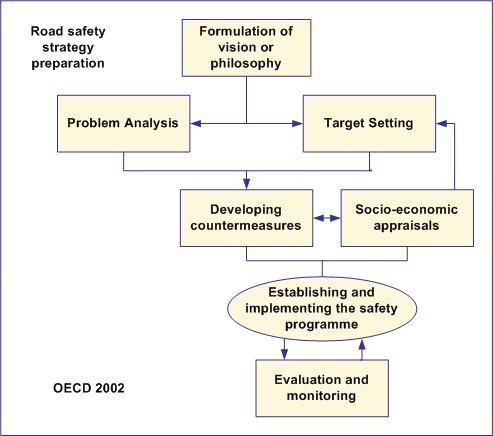Do targets work?
Do targets work?
Increase political will and stakeholder accountabilities. Experience in Europe indicates that targets get and keep road safety on to the political agenda.
Increase accountability Experience also shows that targets are an efficient management tool for defining responsibilities for different levels of administration and among other actors.
Better safety programmes Research shows that quantitative targets can lead to better programmes, a more effective use of scarce resources and an improvement in road safety performance[27]. Countries and counties with quantitative targets perform better than those without targets [37][14].
Better safety performance Research shows that targets that are ambitious are associated with better performance than less ambitious targets [12][13][25]. However, if targets are set that are perceived as too ambitious to be delivered by the current road safety strategy, they may not have the motivating effects that challenging, yet achievable, targets often have [3].
Motivate stakeholders Current good practice combines highly ambitious long term goals using incremental quantitative targets sought within the life of a particular road safety strategy, usually of 10 years duration. A vision or philosophy providing a long term goal and a succession of shorter-term targets directed towards its realisation can have complementary effects in motivating the initial development and subsequent implementation of road safety strategies [2]. The setting of challenging but achievable quantitative targets can strengthen motivation to contribute to casualty reduction and this can be maintained by regular and transparent monitoring of progress towards targets [2].
Tighter management The use of the target hierarchy comprising intermediate outcome targets (e.g. on seat belt use, speed and excess alcohol) as well as institutional output targets ( e.g. for police enforcement activity) in addition to final outcome targets, as used in Australasia, represents best international management practice [4].
Targets need programmes Success in improving road safety performance by setting a target is not guaranteed. Target require realistic programme of interventions to be developed and faithfully implemented (Elvik, 2003) made possible by a solid foundation of effective institutional arrangements [4]. Target setting is but one step in the road safety programming process [28].

